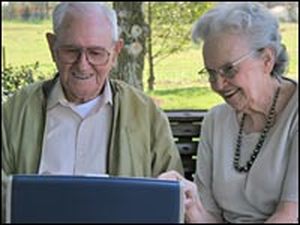NPR
People & Places
'Dear Elders' Dispense Advice Online
by Margot Adler
The
Elder Wisdom Circle recruits senior citizens across the nation
to answer
e-mails from advice seekers.
Sharon Morrison, a member of the Elder Wisdom
Circle,
discusses her role as an advice dispenser.
Go
to the source page: http://www.npr.org/templates/story/story.php?storyId=5197122
First
listen to this file for background on this report:
"On
why she and others saw the need to start the Elder Wisdom Circle"
Then
listen to this file to answer the questions for this exercise:
"On
her specialty: letters from women in troubled relationships"
You are not required to listen to the other audio files
or read the text on the source page, but both
are interesting and may help
you understand the overall context of this report better.
|
you
had asked me... |
 |
you guys to get them where they're young to pressure s.o. to go out with s.o. to write back to be eager to have some one V them to have a guy go out and V... to make oneself a N be yourself to shout down an empty canyon to need s.o. to tell one to do s.t. to lie |
Listening comprehension questions:
1. What kind of letters is senior advice-giver Sharon Morrison most likely to respond to right away, and why?
2. What does Morrison think might be one reason why no men ever write to say they're being abused in a relationship?
3. Do you think the 12-year-old who wrote about the problem with her boyfriend will follow Morrison's advice? Why or why not?
4. What does Morrison recommend to young girls who are really anxious to have a boyfriend?
5. Does she think most girls will follow her advice on this matter? What idiom does she use that addresses this question, and what does it mean?
6. How did the "older woman" react to Morrison's advice regarding her relationship problem?
7. Does English have a second person plural pronoun like the Chinese §AÌ? If so, what is it? What restrictions, if any, are there on its use?
8. Do you sometimes seek the advice of someone over 60 years old? If so, who? And what kind of advice have you asked for? If not, why not?